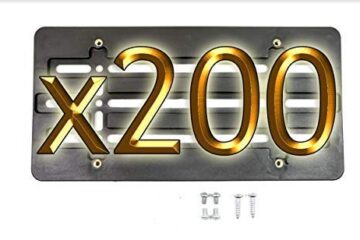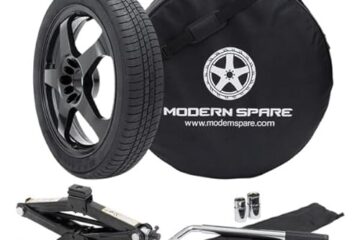Lock Up Torque Converter Vs. Non Lock Up
The main difference between a lock-up torque converter and a non-lock-up torque converter is that the lock-up torque converter has a mechanical clutch that connects and disconnects the engine from the transmission. This allows for more efficient power transfer and better fuel economy.
In contrast, a non-lock-up torque converter does not have this clutch and relies on fluid coupling to transfer power between the engine and transmission. This can lead to decreased fuel economy and potential overheating of the transmission. The decision to use a lock-up or non-lock-up torque converter depends on a variety of factors, including the vehicle’s intended use, engine and transmission characteristics, and desired fuel efficiency.
Ultimately, the choice comes down to balancing performance and fuel economy needs for the specific application.
What Is A Lock-Up Torque Converter?
A lock-up torque converter is a type of transmission component that controls torque delivery from the engine to the transmission. Its operation is crucial in managing fuel economy and improving performance. This component engages the clutch at a certain speed to connect the engine and transmission output shaft directly.
When the car is in the overdrive gear, it disconnects the clutch to prevent slippage and excess heat buildup. Lock-up torque converters have advantages such as reducing emissions, increasing fuel economy, and smoother operation. However, this component can also cause drivability problems and negatively impact acceleration.
There are different types of lock-up torque converters, including the single-stage and multi-stage variants. Overall, a lock-up torque converter can have a significant impact on a vehicle’s overall performance if used correctly.
What Is A Non-Lock-Up Torque Converter?
A non-lock-up torque converter is a type of transmission found in older automatic cars. It doesn’t have the capability to lock up the torque converter like more modern versions. This type of converter has its advantages and limitations. One main advantage is its ability to improve fuel economy, while a limitation is its impact on vehicle performance because of its lack of lockup.
This type of converter operates by using fluid friction to transfer engine power to the transmission. There are different types of non-lock-up torque converters, including the stator, lock-up clutch, and dual turbine. Ultimately, the type of torque converter used depends on the type of vehicle transmission and the preference of the driver.
Lock-Up Torque Converter Vs. Non-Lock-Up Torque Converter: Which One Is Better?
A lock-up torque converter and a non-lock-up torque converter are the two most popular types of torque converters in the automotive industry. A lock-up torque converter is a type of automatic transmission that uses a clutch to mechanically connect the engine to the transmission.
This type of torque converter increases fuel efficiency by reducing slippage and is ideal for highway driving. On the other hand, a non-lock-up torque converter does not use an internal clutch and can be more responsive in stop-and-go traffic. The choice between the two depends on driving conditions, personal preference, and the type of vehicle.
For instance, heavy-duty trucks are better suited for non-lock-up torque converters while sports cars may benefit from lock-up torque converters. Ultimately, the decision depends on individual needs and requirements.
Maintenance And Troubleshooting Of Torque Converters
Regular maintenance is essential for torque converters, which can face common problems. Troubleshooting tips and advice can help fix these issues. Proper maintenance and use can also help prevent unexpected issues. With a lock up torque converter, the clutch engages in high gear to allow for more efficient shifting and better fuel economy.
However, issues such as overheating or fluid leaks may occur if not properly maintained. A non-lock up torque converter is simpler and doesn’t require as much maintenance compared to its counterpart. However, it may have a higher stall speed and lower fuel efficiency.
Overall, understanding the differences and properly maintaining torque converters can help maximize their lifespan and performance.
Frequently Asked Questions For Lock Up Torque Converter Vs. Non Lock Up
What Is A Lock-Up Torque Converter?
A lock-up torque converter enables a direct mechanical connection between the engine and transmission, leading to improved fuel efficiency.
What Is A Non-Lock-Up Torque Converter?
In non-lock-up torque converters, there is no direct mechanical connection between the engine and transmission leading to slippage and decreased fuel efficiency.
Which Torque Converter Is Better, Lock-Up Or Non-Lock-Up?
Lock-up torque converter is better for improved fuel efficiency, as it eliminates slippage, while non-lock-up torque converter might be suitable for heavy-duty applications.
Conclusion
The lock-up torque converter and non-lock-up torque converter have different functionalities, which determine their usage. The lock-up torque converter provides smooth operation and increases fuel efficiency, while the non-lock-up torque converter delivers more power to the transmission and provides better acceleration.
Therefore, it is essential to understand your requirements and make an informed decision when choosing between the two. Based on your driving needs and budget, you can choose between lock-up or non-lock-up torque converters. Additionally, it is important to understand that regular maintenance and timely replacements are crucial for ensuring the longevity of the torque converter.
It is recommended to seek the help of a professional to decide on the best type of torque converter for your vehicle and to ensure proper maintenance. By making an informed decision and providing necessary maintenance, you can ensure that your vehicle runs smoothly and efficiently for years to come.





0 Comments